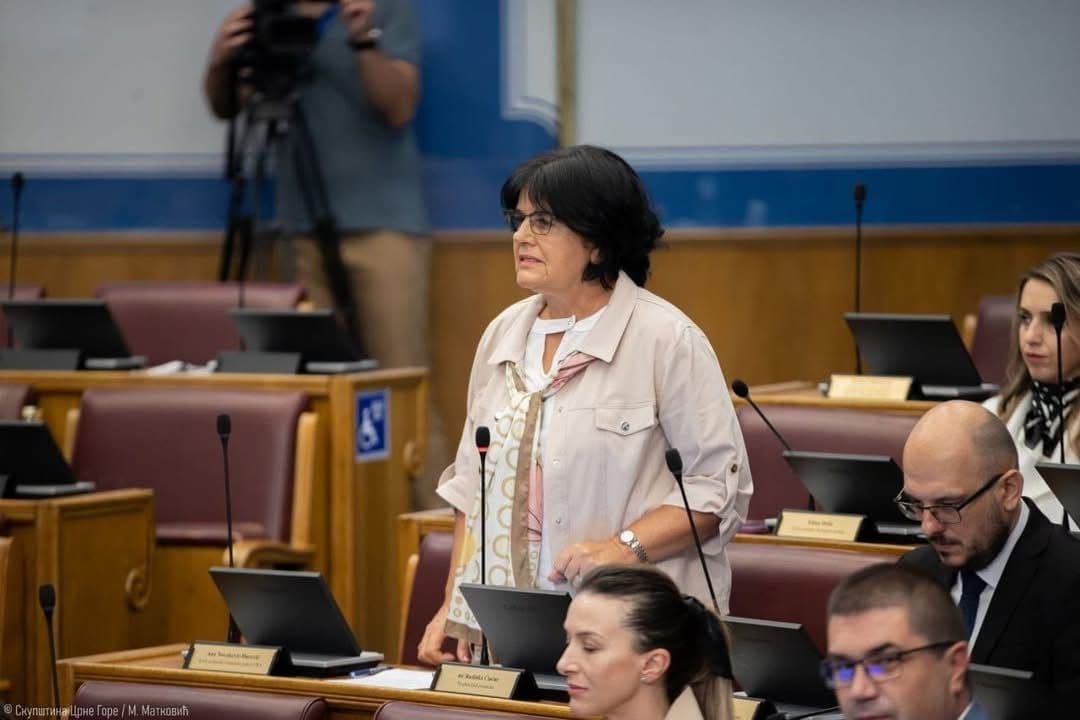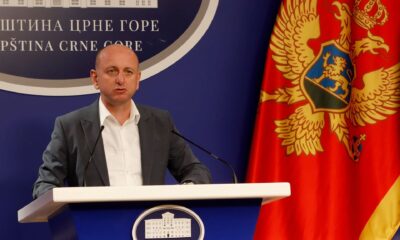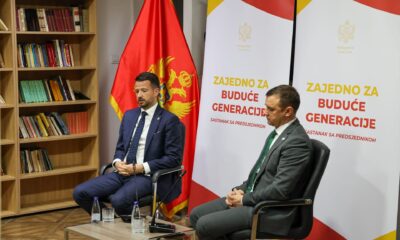Lifestyle
Montenegro’s PM Faces Criticism Over Turkish Investment Transparency

Montenegro’s Prime Minister Milojko Spajić has come under fire for his lack of transparency concerning the economic impact of Turkish investments in the country. During a parliamentary session, he allegedly avoided answering direct questions posed by MP Radinka Čincur, raising concerns about the government’s handling of foreign capital and potential implications for the nation’s financial integrity.
Čincur pressed Spajić with a series of inquiries regarding the influence of Turkish investments, which reportedly exceeded 90 million euros within the first eight months of 2023. She highlighted that Turkish investors are linked to approximately 14,500 registered firms in Montenegro, a number that raises questions given that the country has only around 13,500 residents.
The MP sought clarification on whether the government had implemented measures to prevent potential abuses related to investment schemes and real estate purchases that could facilitate money laundering or conceal ownership. She pointed out the controversial Zeren Group, which has faced multiple international investigations and accusations of money laundering and tax fraud. Recent arrests of responsible individuals from this group in Croatia and Slovenia further heighten concerns over their operations in Montenegro.
In her questions, Čincur demanded to know if Montenegrin institutions, including the Ministry of Interior (MUP) and the Financial Intelligence Unit (FOJ), had verified the origins of the capital and the business activities of the Zeren Group within the country. She also inquired about the government’s awareness of the actual owners and financial transactions associated with this entity.
With Montenegro aiming for full compliance with European Union standards on anti-money laundering, Čincur questioned whether the government plans to collaborate with the FOJ to conduct targeted audits of foreign companies from Turkey operating in high-risk sectors such as real estate, tourism, trade, and financial services.
Čincur emphasized that the residents of Montenegro deserve answers during these challenging times, especially given the rising incidents of xenophobia, which she believes are a result of executive inaction. She criticized the government’s priorities, noting that it appears to focus more on financial gains, regardless of their source, particularly under the guidance of a finance minister who holds a degree from an unaccredited institution.
The lack of response from Prime Minister Spajić on these pressing issues raises significant concerns about the transparency and accountability of the Montenegrin government in managing foreign investments, especially in an era of heightened scrutiny regarding economic practices. As the national discourse continues, the implications of foreign capital in Montenegro remain a vital topic for both the government and its citizens.
-

 World2 days ago
World2 days agoCoronation Street’s Shocking Murder Twist Reveals Family Secrets
-

 Entertainment4 months ago
Entertainment4 months agoKate Garraway Sells £2 Million Home Amid Financial Struggles
-

 Entertainment3 months ago
Entertainment3 months agoAnn Ming Reflects on ITV’s ‘I Fought the Law’ Drama
-

 Health3 months ago
Health3 months agoKatie Price Faces New Health Concerns After Cancer Symptoms Resurface
-

 Entertainment3 weeks ago
Entertainment3 weeks agoCoronation Street Fans React as Todd Faces Heartbreaking Choice
-

 World3 weeks ago
World3 weeks agoBailey Announces Heartbreaking Split from Rebecca After Reunion
-

 World5 days ago
World5 days agoKevin Sinfield Exceeds Fundraising Goal Ahead of Final Marathons
-

 Entertainment5 days ago
Entertainment5 days agoTwo Stars Evicted from I’m A Celebrity Just Days Before Finale
-

 Entertainment3 months ago
Entertainment3 months agoCoronation Street’s Carl Webster Faces Trouble with New Affairs
-

 Entertainment3 months ago
Entertainment3 months agoWhere is Tinder Swindler Simon Leviev? Latest Updates Revealed
-

 Entertainment4 months ago
Entertainment4 months agoMarkiplier Addresses AI Controversy During Livestream Response
-

 Science2 months ago
Science2 months agoBrian Cox Addresses Claims of Alien Probe in 3I/ATLAS Discovery





















